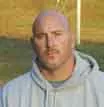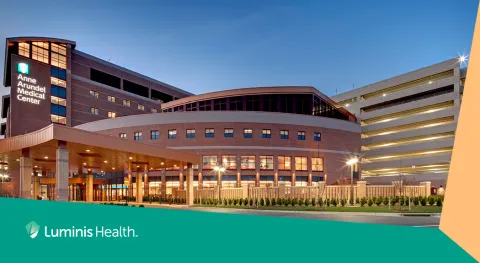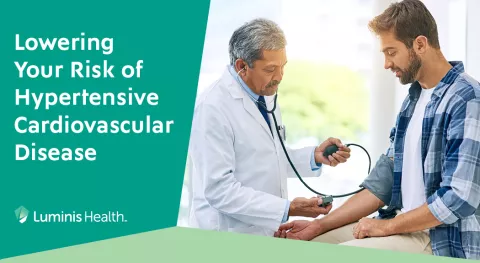by Luminis Health

Forty-six-year-old Wayne Gebelein still plays lacrosse on the 35-and-over league. He’s just not ready to move up with the 45-and-over crowd. “I’m a competitive guy,” he says, “I feel like I can do anything.” But he knows that attitude can override his better judgment. In 2011, the Severna Park resident felt chest pains while moving some boxes. Although his father and grandfather both had suffered heart attacks, Gebelein ignored the nagging evidence until the pain went away. But when it returned two weeks later, he called his wife and asked her to make a doctor’s appointment. “She said, ‘Absolutely not!’ You’re going right to the hospital,’” he says.
“I was in the emergency room at Anne Arundel Medical Center when I went into a full-blown widow-maker,” recalls Gebelein. “I felt a sharp pain and thought, ‘I think I’m having a heart attack.’” The emergency department team immediately transported him to the cardiac catheterization lab, where Interventional Cardiologist Jonathan Altschuler, M.D., removed the clot blocking a major artery to his heart. “If Mr. Gebelein had procrastinated any longer, he may not have made it,” says Dr. Altschuler. “If he had, he would have been left with significant damage to his heart, and his quality of life would have been altered significantly.”
Dr. Altschuler says too many patients deny or minimize the symptoms of a heart attack and wait too long to receive care. He is the director of the cath lab which celebrated its 10th year in November. During that time, more than 1,000 heart attack patients have been treated. “The key is to get care fast,” he says.
One thing that helps patients receive care fast is Anne Arundel Medical Center’s relationship with emergency medical services (EMS) in the surrounding counties. EMS can transmit a patient’s EKG to the emergency department while they are en route to the hospital. If the patient is having a heart attack, the cath lab team of cardiologists, nurses and technicians springs into action 24 hours a day, seven days a week.
Thanks to the cath lab, Gebelein received the care he needed just in time. “I feel like I can run through a brick wall,” he says. Competitive as ever, he knows now that he’s not invincible and has learned to listen to his heart.



